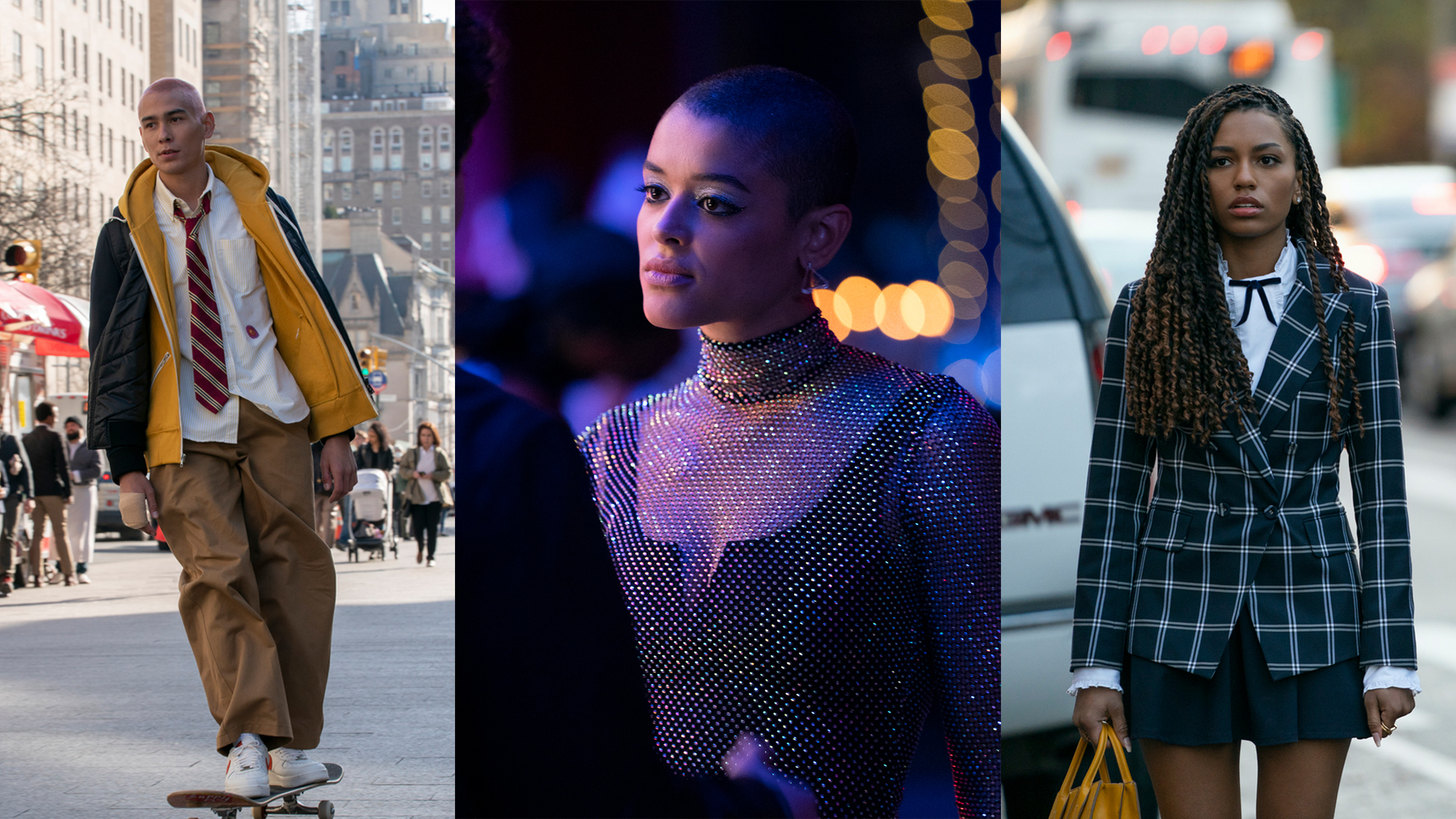The almost immediate reveal of Gossip Girl’s eponymous omniscient narrator in the first episode of the HBO reboot was — as many of the new show’s decisions have been — met with an uncertain derision. The revival made the decidedly conscious decision to have its previously anonymous villain be (this is your official spoiler alert, though it’s been roughly a month since this moment aired, please get your act together streaming-wise) an Instagram account run by a small group of teachers, motivated by the precarity of their work lives and the threat posed to them by the spoiled, über-powerful students at monied Manhattan high school Constance Billard.
Twitter erupted a few weeks before the series’ premiere when Variety reported that showrunner Joshua Safran had said that the new series would “avoid glorifying its characters’ wealth and lifestyles,” and that its protagonists would “wrestle with their privilege” in ways that the originals did not. The anxiety was understandable — a major factor in the original series’ appeal was how good of a hate-watch it was. As i-D contributor Philippa Snow writes for ArtReview, much of the joy in consuming the original Gossip Girl stems from “the way it gave us license to loathe every one of its unfeeling, unrepentant leads.”
But assuming that this license has been revoked is to limit one’s capacity for loathing. The original series’ leads may have been completely oblivious to their privilege, yet this is functionally no different to the new ensemble’s state of ‘wokeness’, one that understands the crushing faux pas of participating in the “Imagine” video, but can’t quite grasp the bizarre tackiness of a “black tie for school supplies” fundraiser. (Yes, this actually happens.) If the spread of Instagram’s black square epidemic last summer taught us anything, it’s that it is entirely possible to possess a surface-level awareness of structural inequality that doesn’t speak to the quality of one’s moral character in the slightest.
HBO’s GG offers a fresh brand of rich git, certainly, but one that can be expected to manifest as the show moves into a new age of information; one that can acknowledge the existence of queerness (but without the requisite trauma plotline) and non-white people and not feel like a jarring anachronism. Accordingly, the reboot’s decision to have Gossip Girl’s identity part of the show’s premise as opposed to its central mystery is, quite simply, smarter writing. The OG series’ nonsensical twist that saw Dan Humphrey —a frequent victim of Gossip Girl’s public missives — revealed as his own tormentor was met with justified fan fury, one that continues to spawn mild outrage-bait almost a full decade afterwards.
Of course, the reboot’s awareness of the original show’s sins can be a little grating at times, particularly as it finds its feet in the first third of the season’s episodes that critics are currently privy to. As Vulture’s Jackson McHenry writes, “the show is self-consciously aping itself,” arguing that the most compelling aspect of reboot is its cabal of desperate, scheming educators. “The teachers have the same dilemma and motivations as the show’s writers, reviving Gossip Girl within Gossip Girl, “ he continues, claiming to eschew the teenaged A-plots. “Please stop trying to get me invested in puppy love when there are adults engaged in a death match with their own sanity over the very concept of youth!”
While the revival’s teachers are wonderfully chaotic, oddly sympathetic characters — especially the group’s leader, Kate Keller (a perfectly-cast Tavi Gevinson) — they appear to serve as a millennial audience surrogate, written specifically for viewers who are watching with a worship-like deference to the original show and its lore. But new Gossip Girl — one in which members of its teen ensemble spurn sexual advances by saying “unsubscribe” and ponder the merits of eating ass — becomes measurably more enjoyable when viewed outside of the limited prism of its CW counterpart.
A 2021 HBO original was never going to be able to give us the camp absurdity of an 00s “cornball melodrama”, but is a poor imitation of a bygone era really what anyone wanted from it? What we get instead are Riverdale-levels of quiet insanity, Evan Mock’s pink-haired softboy character making deadpanned Wong Kar Wai references, and a possibly too on-the-nose but nevertheless intensely satisfying needle-drop of Frank Ocean’s “Super Rich Kids”. Not bad for a reboot at all.
Follow i-D on Instagram and TikTok for more TV.

